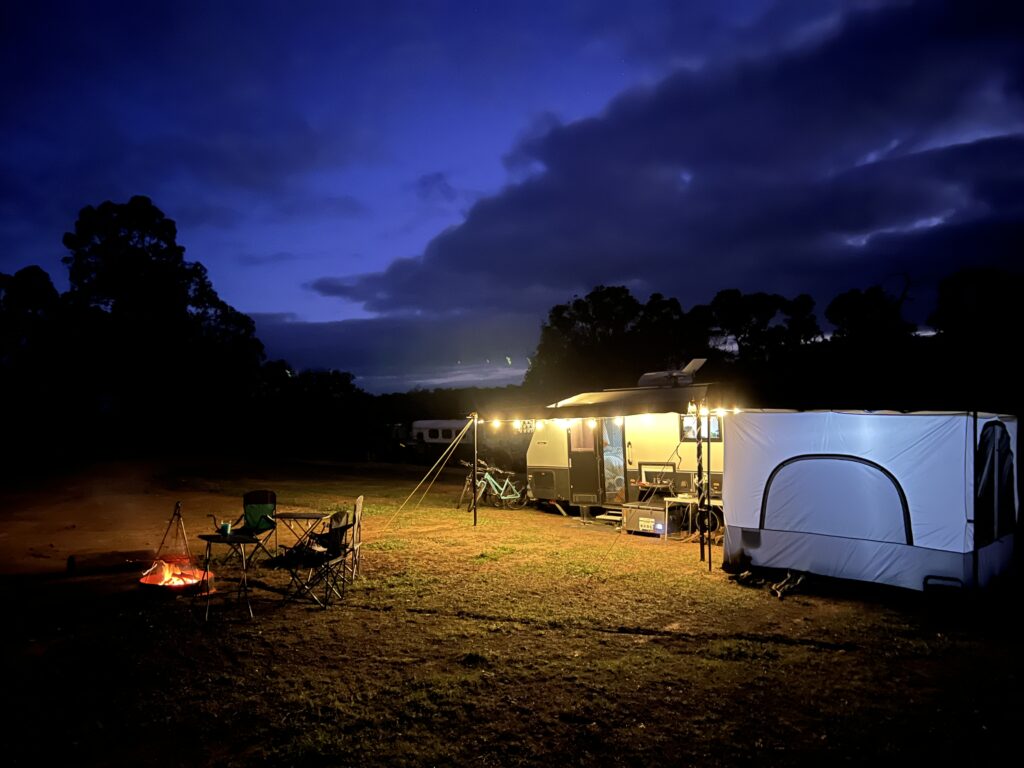
What is an Eco-Nomad?
As the detrimental effects of our consumer lifestyles inevitably emerge from the shadows, the requirement to be eco-friendly is becoming harder to ignore. All the same rules for being eco-friendly at home still apply when travelling. It’s all about making a daily switch to greener choices. You might not be out to save a rainforest, but every eco-friendly choice you make improves the environment and the local communities you visit.
When travelling full-time, doing a half lap, or just for holidays, being an ECO-Nomad is easier than you think!

So, what is an Eco-Nomad?
Eco-Nomads make choices that will positively impact the people and the environment around them.
Being an Eco-Nomad is not just about using renewable power, waste management and recycling (although this is a good start). An Eco-Nomad thinks holistically by considering the economic, social, cultural, and ecological impacts their travels will have on the towns and environments they visit or pass through.
Easy tips to becoming an ECO-Nomad
Remember, this is also about the people and the communities you visit – it’s not just about the environment. See how many of these suggestions you already do at home and could try doing on your next adventure away from home.
Turn off unnecessary power before you leave home – Sure, you’ll want to leave your fridge and freezer running while you’re away, but do your kettle, TV, washing machine, and other appliances need to be left on eagerly awaiting your return?
You don’t need to have an EV to be an Eco-Nomad – Let’s face it. 90% of you reading this blog have an SUV, 4×4 or small truck powered by fossil fuel (me included), with enough grunt to carry the family, pets and fun stuff while still being able to tow your van.
Other than making yourself feel better by doing something trendy like donating to an environmental cause, you can make small changes to help the environment.
Lighten your load – The less weight you carry, the less fuel you’ll use. Happy environment, happy wallet.
Keep your tyres properly inflated – adjust your tyre pressure for the terrain
Travel at an economical speed – there’s no need to show everyone how powerful your vehicle is, save fuel and consider other road users, leave gaps between you and the next slow vehicle so others can overtake, slow down when a roadtrain is overtaking.
Avoid travelling during high traffic times – While this isn’t always possible, plan your trip before leaving to avoid peak hours. Idling chews up fuel, so it may be worth taking a slightly longer route to avoid traffic, meaning you’ll use less fuel in the long run.
On the road
Choose eco-friendly campgrounds or caravan parks – Whether camping in a tent, camper trailer or caravan, choose eco-friendly accommodation providers who contribute to local community development.
Don’t go overboard just because “you’ve paid for it” – Just because you’ve paid a fee for a site with unlimited power and water, don’t be a utility glutton; use only as much as you need. Small things make a big difference. For example, don’t leave the A/C running in the van all day while you’re not there and don’t take extra long showers, turn taps off properly.
Use solar power – When free camping or using an unpowered site, use solar energy over a generator when possible.
Wash as necessary – Save your washing until you have a full load. Avoid using the campground dryers – line dry whenever possible.
Use eco-friendly products where possible – multipurpose, reusable and non-toxic.
Recycle, recycle, recycle – If there’s no recycling where you’re camping, take it with you to the next place or find a local recycling centre if possible.
Off Grid
Choose eco-friendly camp site – Whether camping in a tent, camper trailer or caravan, choose a site that doesn’t impact on flora & fauna.
Don’t break trees or drive over plants – Collect firewood that would otherwise increase the risk of bushfires but don’t cut down trees.
Leave the site as good or better than when you arrived – Pick up plastics and rubbish, fill in your holes, carry a range of natural seeds to plant when leaving.
Exploring local attractions
Focus on attractions and activities that are environmentally responsible and provide opportunities for local communities.
Support RV friendly towns – Supporting locals encourages them to cater for future visits. Where towns say they are RV friendly but in fact are not, give them a pass. (your money is a strong vote)
Some towns reduce the number of over-night free parking to force you to use a caravan park or threaten to confiscate your vehicle if you overstay the 24 hours / or use the same area more than once within 28 days (like Pinjarra, WA) – give them a wide berth.
Download electronic versions of attraction maps, local area guides, etc – Download or take photos of interesting articles and brochures, post them to travel sites for others to see but save our trees, don’t print them.
Take a break, let someone else drive – Do bus tours in popular locations rather than heading out alone.
Get some exercise – Choose leisure activities that use natural energies. For example, use a e-scooter, cycle or walk when exploring a new town or area.
Respect farming quarantine laws when moving through different communities, states and territories.
Shop and eat local – even if it costs a little bit more, support the locals.
Never leave rubbish – Even if it’s not yours, if you see rubbish, do the right thing, pick it up, and bin it.
Respect “No Entry” signs for rejuvenation when visiting natural sites.
Consider donating to organisations that care for and maintain the places you visit.
Consider Volunteering – Volunteer while travelling. Help out victims of bushfires or farmers that need a helping hand where working a few hours a day also gives you that much needed activity.


